Leading change
No conflict between African culture and Islam
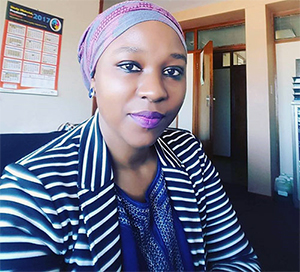 As commemorations of Africa Month gets underway, Unisa staff member Nwabisa Sigaba believes it is important for Muslims in Africa, and particularly South Africa, to start creating a discourse around the revival of critical Islamic Theology, more especially in a world that is increasingly becoming Islamophobic.
As commemorations of Africa Month gets underway, Unisa staff member Nwabisa Sigaba believes it is important for Muslims in Africa, and particularly South Africa, to start creating a discourse around the revival of critical Islamic Theology, more especially in a world that is increasingly becoming Islamophobic.
The postgraduate student assistant in the College of Human Sciences, shared this when she spoke of her journey of converting to Islam. Hailing from the Eastern Cape but having spent most of her teenage years and adult life in Gauteng, Sigaba says growing up Christianity was the only religion she was ever exposed to. She grew up in a predominantly Christian family and was a very active member of the Butterworth Christian Church.
“I knew nothing else and also my primary school was predominantly black with a few coloured people so I very little contact with people of other races. Moving to Gauteng was a huge culture shock for me because it was my first experience of being in a multiracial school with predominantly white kids. It was only in my late high school years, however, that I started to become conscious of the role of religion and it was then that I began to really question some of the fundamental principles of the Christian faith. Today I can proudly say that I have been Muslim for 10 years.”
The wife and mother of two, who has her honours degree in international politics, says there needs to an epistemic shift in how Islam is being taught to people and it needs to speak directly to the problems that humanity is facing. Currently, she adds, people still see Islam as an abstract religion that does not offer real solutions to the problems faced by humanity.
“I also believe that black consciousness is not only an ideology that is useful for black solidarity in South Africa but is a philosophy and ideology that has the potential to unite all the oppressed people of the world and the Islamic world needs to undergo a paradigm shift, or more accurately put, a decolonial one, where Islam enters into conversations with other theologies of liberation in order to solve the problems of the African world and the entire global south is facing.”
Below is a transcript of the full Q&A:
Q: Why did you convert to Islam, what led you down this path?
A: I remember the day I decided to convert; it was just after Christmas in 2007, before I received my matric results. I had been searching online how to convert to Islam and I had found a brother all the way in Egypt, who was assisting me and mailed me some books on the subject and he taught me what I need to do to convert to Islam. I remember taking the Shahada (the Muslim testimony of Faith) via the internet, he sent me a voice record of how to say the Shahada and I repeated the words and that was how I became a Muslim.
The events that led me to go down this path were many. I had many light-bulb moments about Christianity and its inconsistencies but one that stands out for me was a debate I had with a couple of high school friends of mine about the existence of God. It seems like quite a topic for high school teenagers but we were really struggling with this idea and none of us could understand some of the things that were happening in our society.
One friend of mine narrated a story of an old black lady who works on the same street which she lives (a suburb in Pretoria East) and how devout she is in her faith in God and yet she is subject to a life of poverty while she (my friend) does not believe in God and yet is living a pretty comfortable life. We could not understand this phenomenon and why God would allow people who have so much faith and belief in him suffer.
The other thing that made question some of the fundamental principles of the Christian faith was the idea and images of the son of God and God the father. Growing up in the church, the images of God and his son were always portrayed by a white old man who represented the father and a young and youthful Jesus on his right hand side. These images have had a negative impact on my idea of who God is and what is the role and duty God. Upon having a conversation with my friends I then realised that my entire understanding of God was based on a false idea of God as being a white man. This then led me to question the essence of what it means to worship God.
Q: What were the biggest challenges and obstacles you faced when you converted?
A: I think my biggest challenge was actually having to explain to those around me why I had made the choice of converting to Islam. It took me quite a while to actually come out of my shell and make a bold statement to my friends and family about my conversion but when I eventually did, people did not understand and I guess it has much to do with the stereotype that Islam is essentially an Indian religion.
My family took it the hardest, I think for them they could not understand what Islam was because like I said growing up in the Eastern Cape, there is not much exposure to much of other cultures, religions and races so for my family this was completely foreign. I was labelled a devil worshipper, idol worshipper, an anti-Christ and all these negating terms that represent the opposite of Christianity which was holy, pure, salvation and sainthood. It was a tough pill to swallow but my religion teaches me that Islam is a strange thing and that there is nothing wrong with being identified as a stranger in the society.
Learning a new language was also part of the challenge of conversion because Arabic is the language in which the Holy Quran is written and although there are translations in other languages, the five daily prayers have to be done in the Arabic language. I think this has contributed to creating the image that Islam is a foreign religion that is not essentially African and in South Africa is thought to be an Indian religion.
The other challenge was getting used to people mistaking me for a non-South African because of my Islamic dress code. People often thought I was Somalian, Tanzanian, Malawian or Egyptian, some even thought I was Indian or Pakistani and this made me realise just how disintegrated the South African community really is. The fact that people find Islam to be a strange thing that has nothing to do with South Africans and the fact that people assume that black women who adorn the Islamic dress code are oppressed and docile reveals exactly what is wrong with this idea of forced integration.
Q: As you have alluded to, many people don’t see Islam as a religion of all race groups; they mostly see it as an Indian religion. Why do you think this is and what do you say to those people?
A: I certainly have come across people who view Islam as religion of Indians or “foreigners” and one that has nothing to do with African people, least of all South African black people and this is one of the most difficult conversations to have.
The legacy of apartheid created a huge vacuum between people of different races and cultures that when the post-apartheid South Africa was born, people were almost forced to integrate and become a rainbow nation. This created the problem where black people who were isolated from whites, Indians and coloureds had to adapt to different cultures and religions of which they were hardly exposed to, if at all.
Historically Islam came to the Southern part of Africa through Indian and Malaysian slaves who settled on the coastal areas of the country and because of colonialism and later the policies of separate development, the growth and advancement of Islam in the Southern part of the continent was largely restricted amongst the Indians and later the Cape Malays.
Black South Africans were largely exposed to Christianity and its various denominations and other religions were assumed to be foreign or belonging to other racial groups and I believe this is mainly the reason that has led South Africans to view Islam as an Indian religion or a foreign one. How I usually address such views is to point to these particular conditions that have created this type ignorance amongst South African people and also I try and educate people that Islam is not essentially a new religion but one that are part of all Monotheistic religions of the world.
Q: What are the biggest misconceptions people have of your religion that you find yourself defending every day?
A: One of the biggest misconceptions is that Muslim women are oppressed, submissive to men and docile and this could not be further from the truth. Like any other religion, there are a few fundamentalists who take the religious teachings out of context and apply extreme measures in observing religious duties but Islam is a religion that teaches and preaches moderation. Part of moderation is the teaching of modesty for both men and women and part of a woman’s modesty lies in the way she dresses and the way she conducts herself in the outside world. I find myself at times having to explain why I cover myself and wear a headscarf and I explain by stating that in Islam there is no compulsion in anything, we acknowledge man’s free will to decide and part of that free-will is the ability to choose to obey or disobey the command of God as stipulated in our Holy Book.
The other issue is that of Muslims being labelled as terrorists and this also speaks to religious extremism and certain individuals within the faith who interpret the Holy Quran without context and without the legal authority to do which results in people conducting themselves in ways that are not prescribed within Islam. Religious terrorism at times is also an invention of Western media that seeks to taint the image of Muslims around the world and some of these so-called terrorist groups are not even created by Muslims.
Q: How do you deal with the above misconceptions?
A: One of the most challenging things about being a Black South African Muslim woman is this constant need for us to explain our identity and why we have chosen this so called “foreign” religion that has nothing to do with our Africaness. I always dismiss such arguments as provincial, ignorant and based on colonial concepts about what is accepted faith and belief in God, and in South Africa Christianity is the only right theology and articulation of faith that most people know and are exposed to. It also does not help the situation when Muslim communities in South Africa continue to remain isolated from the broader issues facing the South African population. There are very few Muslims, and indeed Muslim women, who are confident enough to wear their hijab (headscarf) in their respective work environments or public spaces out of fear of persecution or having too many people asking them too many questions about the activities of other Muslims in other parts of the world. I mean I have people asking me about the actions of AL Qaeda and ISIS as if I am part of those movements and to explain why they do the things they do. I must admit it really is tough being a Muslim in the modernised 21st century where images of Muslims in the media are always about a down trodden people who need to be civilised and democratised and initiated into the eurocentric worldview.
Q: How do you address the questions of African culture vs religion?
A: I was a Christian before I became a Muslim, however, it is the Muslim belief that all human beings are born into the natural state of Islam and are converted either by their parents or other societal influences away from this state.
Islam is actually not necessarily a religion, in fact it is not, it is a way of life. Islam means “peace through submission” and this submission is recognised as submission to the creator and source of life. Islam teaches us to serve mankind, and that this is the purpose of our existence is to servitude to each other towards the attainment of peace and harmony. Islam essentially teaches ubuntu and the social teachings found the African philosophy of ubuntu are also found in Islam so for me African culture is very much close and similar to Islamic teachings and way of life.
Islam promotes socialist values that reflect a communal social, political and economic structures of society where all people are equal before God, with no class and racial differences. I do not essentially see a conflict between my cultural heritage as a Xhosa speaking woman and the teachings of Islam which is why I am able to confidently express both my religious and African beliefs without fear or prejudice. It is a myth that African culture and tradition are incompatible with Islam and Islamic teachings.
Q: As a decoloniality activist, can you speak on the space of Islam and decoloniality from a personal perspective?
A: I think decoloniality and decolonial activism have given me a language to articulate the experiences I have as Muslim living on the darker side of modernity because Muslims are still struggling to negotiate their existence as human beings, just like any group of people who are oppressed in the world. Decoloniality has allowed me to understand the link and intersectionality between racial and religious oppression because islamophobia in its historical essence gave rise to colour racism. In attending the Decolonilaity Summer School I have been able to link my struggle as Muslim living in South Africa with the struggles of Muslims living in other parts of the world and with this it gives a new agency to the struggle for liberation as not one encompassing inclusion into the eurocentric worldview. It has allowed me to embark on the decolonial turn which requires a complete shift away from the current expressions of Islam and Islamic identity often articulated by the west for Muslims and to seek to create an Islamic worldview (not that one does not exist) which speaks to the reality and experiences of Muslims around the world.
* By Rivonia Naidu-Hoffmeester
Publish date: 2017-05-23 00:00:00.0


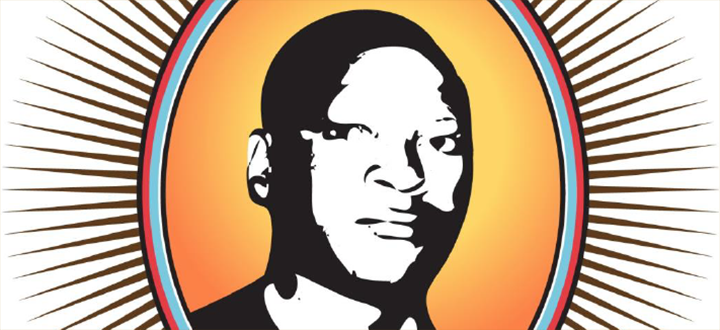 Unisa honours Dr OK Matsepe's enduring legacy
Unisa honours Dr OK Matsepe's enduring legacy
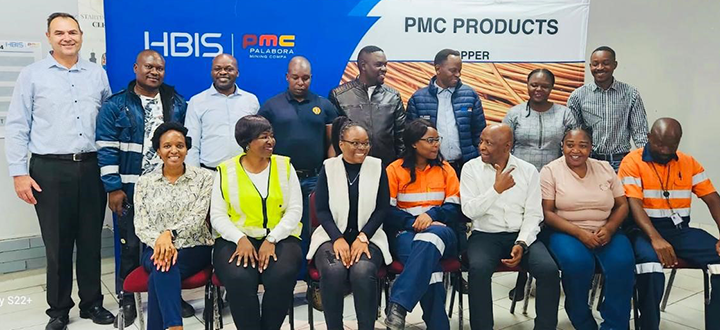 Great strides towards concretising Unisa-PMC partnership
Great strides towards concretising Unisa-PMC partnership
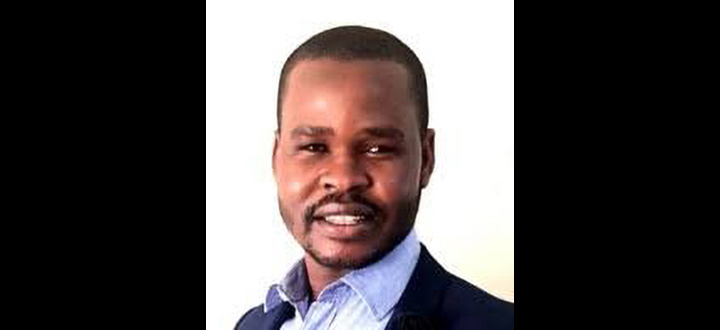 Mental health among men in the workplace needs more attention
Mental health among men in the workplace needs more attention
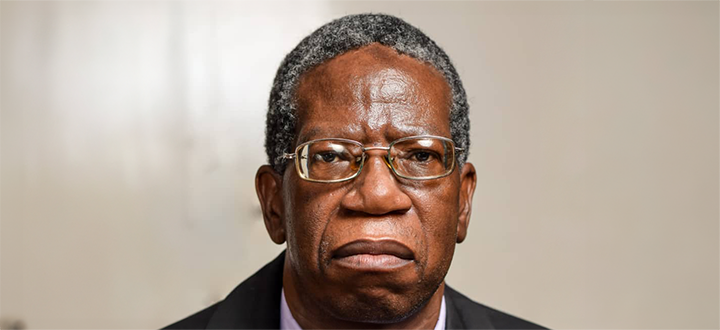 "I owe everything to Unisa and my late supervisor's priceless mentoring"
"I owe everything to Unisa and my late supervisor's priceless mentoring"
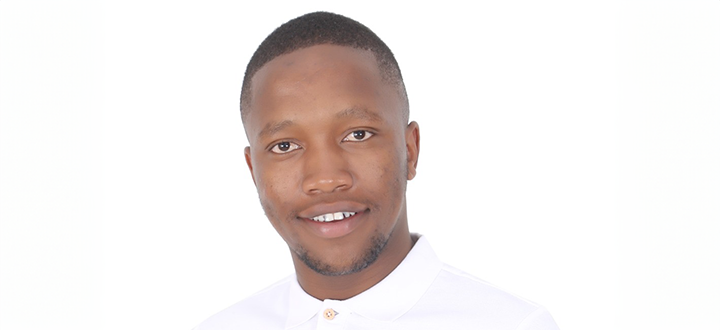 Majikijela - a queer scholar raising homosexuality awareness through his work
Majikijela - a queer scholar raising homosexuality awareness through his work